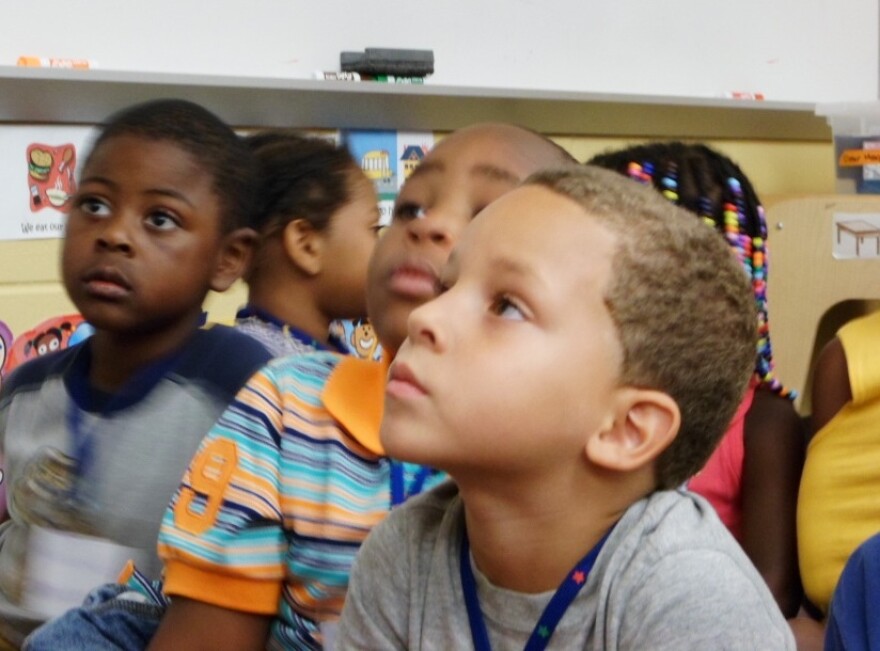Preschool seems to be having a moment right now. Lots of states are looking at expanding access to a pre-K education. Michigan Governor Rick Snyder just proposed an extra $130 million in spending over the next two years to make sure all 4 year olds from low income homes can go to preschool.
Last night in his State of the Union address, President Obama took the idea even further. He proposed giving all 4 year olds access to preschool.
But a promise made in a speech is not the same thing as a policy, and the President's somewhat vague comments left more questions than answers.
So, we're going to try to answer 3 of the most important questions with the information we have right now:
1. What will the President's proposal actually look like?
We don't really know, but many people expect that the White House will model its plan after one that was proposed by the Center for American Progress earlier this week. The Associated Press reported on that plan, noting that CAP has close ties to the White House and "seldom does the organization move too far or too quickly ahead of White House priorities."
CAP's proposal is actually more ambitious than what Obama laid out last night. The plan would expand pre-K access to both 3 and 4 year olds, with the federal government providing matching funds to states that create their own pre-K programs. From CAP's release on the proposal:
Under CAP's plan the federal government would, on average, match state preschool expenditures up to $10,000 per child per year. This amount is enough to provide high-quality full-day (nine-hour) prekindergarten to families who want it, while also enabling families to choose shorter-day alternatives.
The CAP proposal calls for free preschool to any 3 or 4 year old whose parents make a total of less than $46,000 per year. Above that income level, parents could still send their kids to preschool, with the cost determined on a sliding scale based on income.
2. If that's the plan, how much will it cost?
A lot:
The estimated 10-year federal cost is $98.4 billion over existing spending levels. Our plan phases in over five years - first enrolling low-income children and expanding to full coverage by the end of the fifth year. Once the program is fully scaled, it will cost an additional $12.3 billion per year.
And, according to CAP's proposal, this spending would have to be matched at the state level. Though, CAP says the federal government should provide matching funds on a sliding scale that takes into account the concentration of poverty in a district, the state's "fiscal effort" and the cost of providing the education.
3. Will it happen?
This is, of course, the most difficult question to answer at this point. There's a long history of State of the Union proposals that never went anywhere. Obama's own record on SOTU promises is mixed. But there are reasons to think that the preschool proposal has a shot. For one, expanding preschool has become a decidedly non-partisan idea. The states that have moved most aggressively, and spent the most money, on preschool are hardly known for their bleeding-heart liberalism. Obama mentioned Georgia and Oklahoma in his speech. In Florida, voters approved universal pre-K by ballot measure in 2002 (though the legislature's implementation of that program has been criticized).
And in Michigan, as in other states, the push for more preschool funding has come mainly from Republicans, so there's reason to believe that Obama may have some support from across the aisle when his plan comes out.
Still, ensuring a quality preschool program will not be cheap, and there seems to be little appetite in Washington for new spending programs, even if the President promises that his plan won't add to the deficit.
Also, many people who support preschool funding at the state level may have a different attitude when it comes to federal involvement. The influential conservative magazine National Review has already posted one response online that takes this view (though the piece takes an extremely pessimistic view of the effectiveness of preschool, a view that many conservatives do not share).
So, bottom line, will Obama's idea for universal preschool go anywhere?
Your guess is as good as mine.





